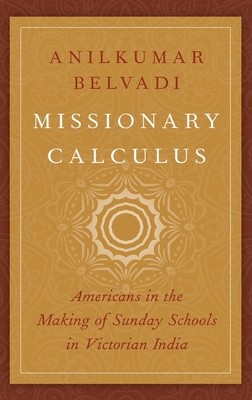
- We will send in 10–14 business days.
- Author: Anilkumar Belvadi
- Publisher: Oxford University Press, USA
- ISBN-10: 0190052422
- ISBN-13: 9780190052423
- Format: 15.2 x 23.6 x 2.3 cm, kieti viršeliai
- Language: English
- SAVE -10% with code: EXTRA
Reviews
Description
How are religious educational institutions built? In histories of evangelical institution-building in the Victorian Indian colonial period (1858-1901), this question has mostly been addressed from the perspective of the religious ends that Christian missionaries sought to achieve and the ideological obstacles they encountered. This may be called the 'values' approach. Missionary Calculus sets this aside and examines, instead, the most routine transactions of missionaries in building an evangelical institution, the Sunday school. Missionaries daily struggled with and acted upon certain questions: How shall we acquire land and money to set up such schools? What methods shall we employ to attract students? What curriculum, books, and classroom materials shall we use? How shall we tune our hymns? Shall we employ non-Christians to teach in Christian Sunday schools? The makers of colonial Sunday schools focused obsessively on the means, the material and symbolic resources, with which
they felt they could achieve certain immediate objectives. Such a transactional or 'instrumental' approach resulted in stated religious 'values' being insidiously compromised. Using insights from classical Weberian sociology, and through a close scrutiny of missionary means, this book shows how the success or failure of meeting evangelical ends may be assessed.
EXTRA 10 % discount with code: EXTRA
The promotion ends in 21d.19:43:04
The discount code is valid when purchasing from 10 €. Discounts do not stack.
- Author: Anilkumar Belvadi
- Publisher: Oxford University Press, USA
- ISBN-10: 0190052422
- ISBN-13: 9780190052423
- Format: 15.2 x 23.6 x 2.3 cm, kieti viršeliai
- Language: English English
How are religious educational institutions built? In histories of evangelical institution-building in the Victorian Indian colonial period (1858-1901), this question has mostly been addressed from the perspective of the religious ends that Christian missionaries sought to achieve and the ideological obstacles they encountered. This may be called the 'values' approach. Missionary Calculus sets this aside and examines, instead, the most routine transactions of missionaries in building an evangelical institution, the Sunday school. Missionaries daily struggled with and acted upon certain questions: How shall we acquire land and money to set up such schools? What methods shall we employ to attract students? What curriculum, books, and classroom materials shall we use? How shall we tune our hymns? Shall we employ non-Christians to teach in Christian Sunday schools? The makers of colonial Sunday schools focused obsessively on the means, the material and symbolic resources, with which
they felt they could achieve certain immediate objectives. Such a transactional or 'instrumental' approach resulted in stated religious 'values' being insidiously compromised. Using insights from classical Weberian sociology, and through a close scrutiny of missionary means, this book shows how the success or failure of meeting evangelical ends may be assessed.


Reviews